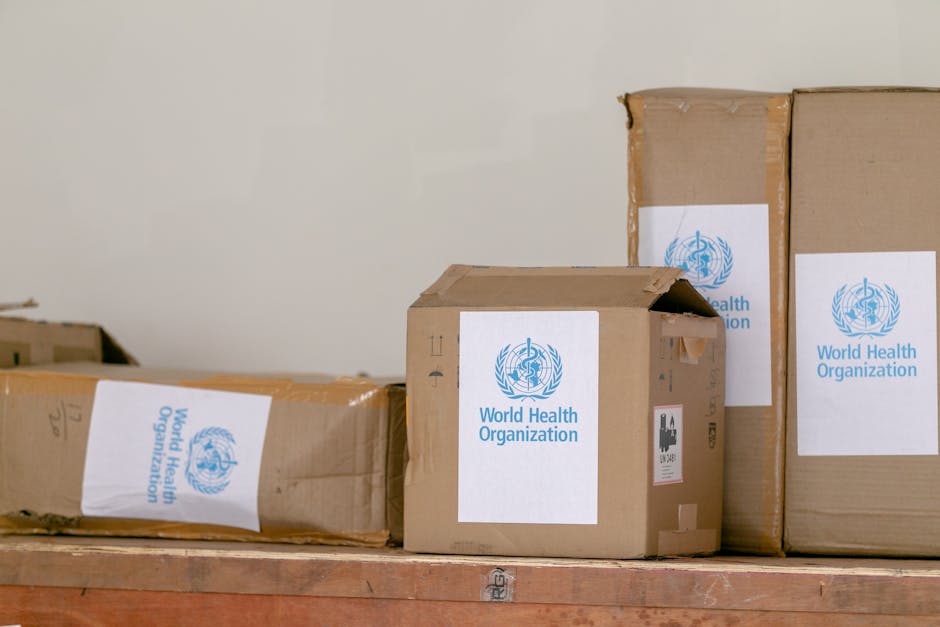WHO Reaffirms Global Nutrition Goals, Tightening Marketing Regulations in 2025
GENEVA, May 22, 2025 – The World Health Assembly (WHA) concluded its annual session today, reaffirming its commitment to achieving global nutrition targets and strengthening regulations around the marketing of unhealthy foods and beverages. The resolutions passed reflect a growing international consensus on the urgent need to combat rising rates of diet-related diseases. Delegates from numerous countries emphasized the importance of coordinated action to protect public health, particularly among vulnerable populations.
Renewed Focus on Global Nutrition Targets
The WHA’s resolutions emphasize the need for accelerated progress toward achieving the World Health Organization’s (WHO) global nutrition targets for 2025. These targets aim to reduce the prevalence of childhood stunting, wasting, and overweight, while also improving the consumption of essential micronutrients. The assembly highlighted the persistent disparities in nutritional status across and within countries, emphasizing the need for targeted interventions. Significant funding commitments and robust monitoring mechanisms were deemed critical to address these challenges.
Shortfalls and Challenges
While progress has been made in some regions, significant shortfalls persist in achieving the 2025 targets. Many low- and middle-income countries continue to face substantial challenges in improving nutrition outcomes due to factors such as poverty, food insecurity, and limited access to healthcare services. The WHA acknowledged these obstacles and called for increased international cooperation to support these nations in strengthening their national nutrition programs. This includes bolstering healthcare infrastructure and promoting sustainable food systems.
Strengthening Regulations on Unhealthy Food Marketing
A key focus of the WHA was the tightening of regulations on the marketing of unhealthy foods and beverages, particularly those targeting children. Delegates expressed alarm at the pervasive and often deceptive marketing tactics employed by food and beverage companies, contributing significantly to the rise of childhood obesity and diet-related diseases. The Assembly underscored the need for comprehensive strategies to restrict advertising, promotion, and sponsorship of products high in sugar, salt, or unhealthy fats.
Specific Regulatory Measures
The resolutions adopted included provisions for stricter regulations on advertising during children’s programming, a ban on the use of cartoon characters to promote unhealthy foods, and restrictions on the placement of these products in retail settings. These measures were widely supported, reflecting a growing global understanding of the significant impact of marketing on dietary choices, especially among younger consumers. The WHA stressed the importance of consistent enforcement of these regulations to ensure their effectiveness.
International Collaboration and Funding
The WHA underscored the critical role of international collaboration in achieving its nutrition and marketing goals. This includes strengthening partnerships between governments, international organizations, civil society groups, and the private sector. The Assembly also highlighted the need for increased funding for nutrition programs and initiatives aimed at regulating unhealthy food marketing. Securing these funds, alongside implementing effective monitoring and evaluation systems, is vital to ensure accountability and track progress.
Key Funding Commitments
- Several high-income countries pledged increased financial contributions to the WHO’s nutrition programs.
- A new global fund dedicated to regulating the marketing of unhealthy foods was proposed.
- Significant funding was allocated towards research and development of evidence-based interventions.
- International development banks agreed to incorporate nutrition and marketing regulations into their lending strategies.
Implications and Future Impact
The resolutions passed by the WHA signal a significant shift in the global approach to tackling diet-related diseases. The renewed focus on nutrition and strengthened marketing regulations are likely to have a profound impact on public health outcomes in the coming years. The effectiveness of these measures, however, will heavily depend on effective implementation and robust monitoring at the national level. Sustained international cooperation and adequate funding will be crucial to ensure that the targets are met.
Long-Term Projections and Challenges
While the WHA’s resolutions are a positive step, significant challenges remain. Sustained political will and effective enforcement mechanisms will be crucial to combat industry lobbying and ensure compliance. Monitoring progress and adapting strategies based on evidence will be equally important. Long-term success will depend on building strong national capacity and ensuring equitable access to healthy food and nutrition services across all populations. The coming years will be critical in determining whether these resolutions translate into tangible improvements in global health.
Conclusion: A Pivotal Moment for Global Nutrition
The 2025 WHA session marked a pivotal moment in the global fight against diet-related diseases. The reaffirmed commitment to achieving nutrition targets and the strengthened regulations on unhealthy food marketing represent a significant step towards creating healthier food environments. While challenges remain, the international consensus and renewed resolve demonstrate a growing understanding of the urgent need for coordinated and comprehensive action. The success of these efforts will ultimately depend on the sustained commitment of governments, international organizations, and the wider global community to prioritize public health and well-being.

